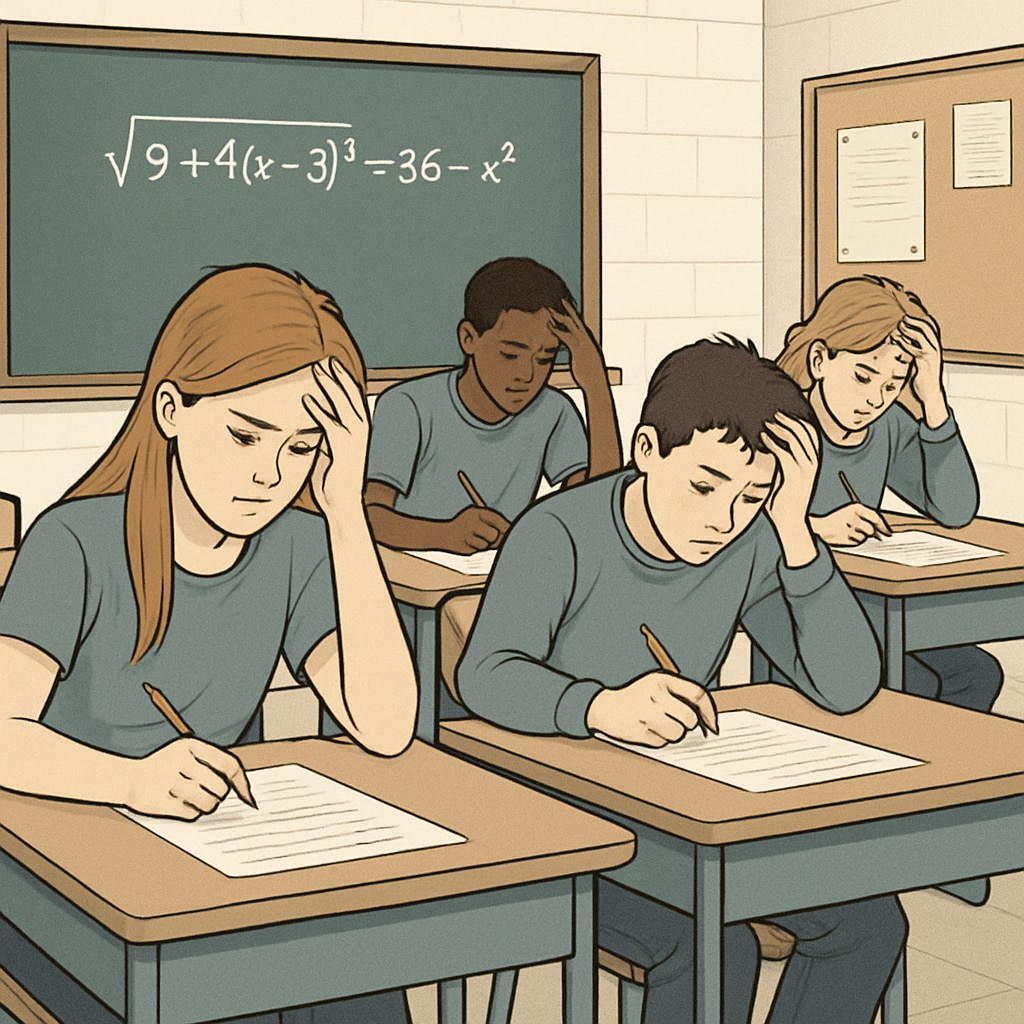Failing a GCSE math resit can be a distressing experience for students, often leading to significant consequences for their academic and personal lives. Despite promises from schools to provide adequate support and resources, many students find themselves struggling to cope with the aftermath of failure. This article delves into the challenges students face when educational commitments fall short, evaluates the impact on their mental health, and explores solutions to safeguard their rights and future opportunities.
The Emotional and Academic Toll of GCSE Math Resit Failures
For many students, passing GCSE math is critical—it is often a mandatory requirement for further education or employment opportunities. When students fail their resits, they face not only academic setbacks but also emotional distress. The pressure to succeed can exacerbate anxiety, lowering self-esteem and leading to long-term impacts on their mental health.
Schools frequently pledge to provide remedial support, such as tutoring or tailored learning plans, but these efforts often fall short in practice. A lack of individualized attention, inadequate teaching methods, or insufficient resources can leave students feeling abandoned by a system that promised to help them succeed.

Discrepancies Between Educational Promises and Reality
One of the key issues is the gap between what schools promise and what they deliver. Educational institutions often emphasize their commitment to ensuring students achieve essential qualifications, yet many fail to provide the necessary tools and environment for success. This discrepancy can undermine student trust in the system and exacerbate feelings of helplessness.
Moreover, the focus on standardized testing places undue pressure on students while ignoring individual learning needs. For example, students with learning disabilities or those who struggle with test anxiety may require alternative evaluation methods, yet these are rarely offered. As a result, the one-size-fits-all approach to resits often fails to accommodate diverse student circumstances.

Proposed Solutions to Safeguard Student Rights
To address these challenges, educational institutions and policymakers must consider reforms that prioritize student well-being and equitable access to resources. Here are several actionable steps:
- Enhanced Support Systems: Schools should implement robust support frameworks, including peer mentoring, specialized tutoring, and access to mental health counselors.
- Flexible Assessment Methods: Introducing alternative evaluation methods, such as coursework or online assessments, can accommodate diverse learning needs.
- Transparent Communication: Schools must clearly outline the resources available to students and ensure these promises are fulfilled.
- Policy Reforms: Government bodies should incentivize schools to allocate more funding and training for staff handling resits and remedial programs.
By addressing these issues, the education system can better support students and reduce the emotional toll associated with resit failures.
Prioritizing Mental Health in Academic Settings
Another critical aspect is the impact of failure on students’ mental health. The stigma surrounding resits often leads to feelings of shame or inadequacy, which can escalate into anxiety or depression. Schools must take proactive measures to prioritize mental health alongside academic achievement.
For example, integrating mental health education into the curriculum and encouraging open dialogue about failure can help destigmatize the experience. Furthermore, access to school counselors and peer support groups can provide students with the emotional tools needed to cope with setbacks effectively.
Ultimately, fostering a supportive environment where students feel valued regardless of their academic performance is essential for promoting resilience and long-term success.
Conclusion: Bridging the Gap Between Promises and Outcomes
Failing a GCSE math resit should not be the end of the road for students. Instead, it should be a stepping stone for growth and improvement. However, this can only happen if schools and policymakers take meaningful action to ensure educational promises translate into tangible support. From enhancing resources to prioritizing mental health, there is much that can be done to address this issue effectively.
By recognizing the challenges students face and implementing reforms, the education system can empower students to overcome setbacks and achieve their full potential—both academically and personally.
Readability guidance: This article uses concise paragraphs, accessible language, and actionable recommendations to ensure clarity. Lists and headings break down complex ideas, making the content approachable for readers.


